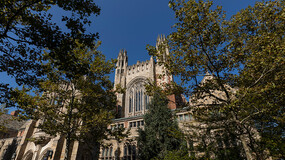Gerald Torres
LL.M., University of Michigan Law School, 1980
J.D., Yale Law School, 1977
A.B., Stanford University, 1974
- Saginaw-Chippewa Disenrollment Clinic
- Federal Indian Law
LL.M., University of Michigan Law School, 1980
J.D., Yale Law School, 1977
A.B., Stanford University, 1974
Gerald Torres is Professor of Environmental Justice at the Yale School of the Environment, with a secondary appointment as Professor of Law at the Law School.
A pioneer in the field of environmental law, Torres has spent his career examining the intrinsic connections between the environment, agricultural and food systems, and social justice. His research into how race and ethnicity impact environmental policy has been influential in the emergence and evolution of the field of environmental justice. His work also includes the study of conflicts over resource management between Native American tribes, states, and the federal government.
Previously, Torres taught at Cornell Law School, the University of Texas Law School, and the University of Minnesota Law School, serving as an associate dean at both. He is also a former president of the Association of American Law Schools and served as deputy assistant attorney general for the Environment and Natural Resources Division of the U.S. Department of Justice during the Clinton administration.
Torres’s past work has examined how U.S. regulations have created racially or ethnically marginalized communities that bear a disproportionate share of environmental burdens and also has focused on developing strategies to improve governmental decision-making. He is also a leading scholar in critical race theory — a theoretical framework that examines questions of race and racism from a legal standpoint. His book The Miner’s Canary: Enlisting Race, Resisting Power, Transforming Democracy, coauthored with Lani Guinier, was described as “one of the most provocative and challenging books on race produced in years.”



